Village celebrates new future for the Fox
[photo: Directors of Loxley Community Benefit Society celebrate the purchase with a socially distanced drink]
The small village of Loxley near Stratford-upon-Avon is the latest to save its only pub from permanent closure.
Local residents acted quickly when the Fox was unexpectedly put up for sale in April 2019. They formed an action group, conducted a community survey and held consultation events in Loxley and neighbouring villages, to generate and gauge support for community ownership of the pub. They set up a community benefit society and made an offer to buy the Fox which was accepted in October 2019. They then set about raising the investment needed.
The group received support from the More Than A Pub programme, which provides free advice and webinars, bursaries, grants and loans to communities seeking to buy their local, as well as those who are already trading. The programme is funded by Power to Change and is delivered by Plunkett Foundation working in partnership with Co-operative & Community Finance and the Key Fund.
The community share issue exceeded its target of £250k and raised a total of £271,150 from 214 investors who were almost entirely local residents. Interestingly, another community pub in Warwickshire, the New Inn at Norton Lindsey, invested the £250 prize money it had received from the Plunkett Community Business Awards.
Together with the grant and loan from More Than A Pub, the community had the finance it needed to buy the Fox. However the purchase was greatly delayed by the coronavirus pandemic and was not completed until 1 September 2020.
Paul Jennings, Chair of Loxley Community Benefit Society, said: “The Fox is a traditional pub in a small rural village that has no shop or village hall. It is the centre of the community – the only public space for people to meet and interact. If the community had not come together and bought it, the site would probably have been sold to a housing developer.”
The villagers will have to wait till spring before they can savour the hospitality of their new purchase. Repairs and refurbishment are needed to the roof, bar area and the upstairs accommodation. A manager needs to be recruited.
The Fox has a beer garden, car park and paddock and this outside space will be particularly useful in allowing the pub to operate as safely as possible while the threat of virus infection remains high. In the longer term there are plans to create a community orchard and vegetable garden in the paddock.
Asked why he believed the Fox would flourish under community ownership when previous tenants had struggled, Paul explained: “We don’t have to pay rent and we can choose our suppliers. This helps our cost base. Also we are not under pressure to make quick or high profits. Our aim is sustainability. We are providing and maintaining a community asset for the long term.”
Tim Coomer, Business Development Manager of Co-operative & Community Finance, said: “We are really pleased to have been able to support Loxley CBS to secure the Fox. I visited the group back in February 2020 just before the COVID-19 situation unfolded and put the project’s future into jeopardy. Seven months on it’s fantastic that their determination and commitment to secure the Fox into community ownership never wavered and the community now proudly have their pub back; even if they will have to wait awhile for their first pint!”

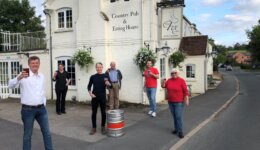
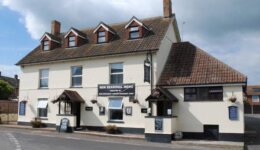

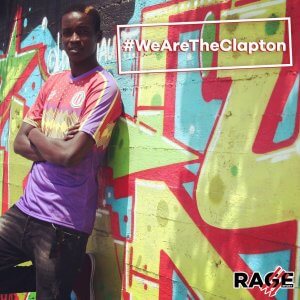 The fan-owned club has succeeded because it is passionate about equality, democracy and fairness. It encourages people of all backgrounds and abilities to get involved. The club is passionately anti-fascist, anti-sexist and anti-racist.
The fan-owned club has succeeded because it is passionate about equality, democracy and fairness. It encourages people of all backgrounds and abilities to get involved. The club is passionately anti-fascist, anti-sexist and anti-racist. 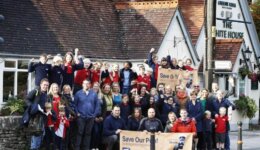
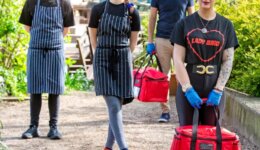
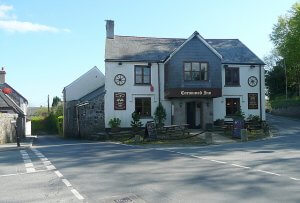 The Cornwood Inn was bought in September 2019 by a group of benefactors to prevent the premises being sold at auction. The community benefit society was registered in December and a community share issue was held that attracted over 300 investors. This, together with the grant and loan from More Than A Pub, allowed the transfer to community ownership to be completed in March, just after Covid-19 lockdown had started.
The Cornwood Inn was bought in September 2019 by a group of benefactors to prevent the premises being sold at auction. The community benefit society was registered in December and a community share issue was held that attracted over 300 investors. This, together with the grant and loan from More Than A Pub, allowed the transfer to community ownership to be completed in March, just after Covid-19 lockdown had started. Unlike Cornwood, The Hive has been buzzing with activity over the last month. It has been livestreaming performances from the homes of local musicians. It has also developed a new service called Doorstep Serenaid whereby you can book a musician to sing a few songs 2 metres from someone’s doorstep with a personal message such as ‘Happy Birthday’ or ‘Missing You’. 75% of the money raised goes to the local hospice.
Unlike Cornwood, The Hive has been buzzing with activity over the last month. It has been livestreaming performances from the homes of local musicians. It has also developed a new service called Doorstep Serenaid whereby you can book a musician to sing a few songs 2 metres from someone’s doorstep with a personal message such as ‘Happy Birthday’ or ‘Missing You’. 75% of the money raised goes to the local hospice.

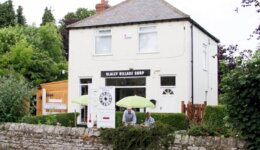
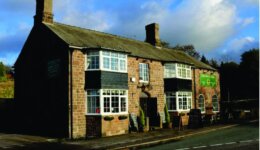
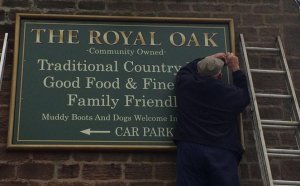
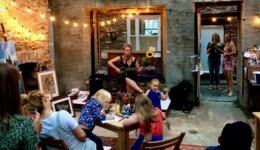
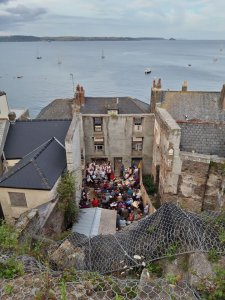

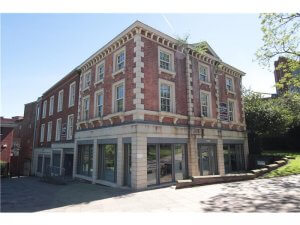 Sue Wynne, chief executive of Rotherham Rise, said: “The market for rented offices in Rotherham does not favour not-for-profit organisations like us. We have had to move premises several times in the last 10 years and it’s been expensive and disruptive. We have been wanting to buy somewhere for a while now so that our working environment is stable and sustainable.”
Sue Wynne, chief executive of Rotherham Rise, said: “The market for rented offices in Rotherham does not favour not-for-profit organisations like us. We have had to move premises several times in the last 10 years and it’s been expensive and disruptive. We have been wanting to buy somewhere for a while now so that our working environment is stable and sustainable.”